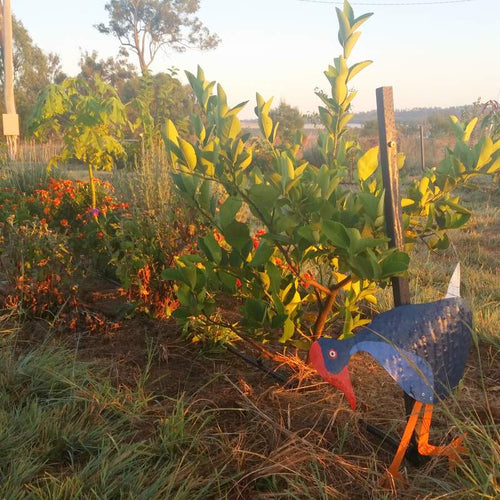Making use of microbes in the soil
Another paradigm shift….
I began the first summary page (Understanding Soil Minerals for Plant Nutrition) with a paradigm shift – adding several more mineral requirements to the traditional NPK in agricultural fertilisers. This post also requires a shift in thinking, this time we need to change the idea that all microbes, bugs and germs are bad guys. Actually there are an amazing range of bacteria, fungi, protozoa and even nematodes that can help us to grow healthy, resilient and nutritious plants, and release minerals from the soil so that we don’t have to pay for them. We need to support these helpers so that our job is easier, if we try to kill any that are perceived as bad, it can disrupt the balance and start to make life difficult for us.
The importance of humus
Organic matter in the soil is classified as either raw organic matter, active humus (consumed in about 6 months) and stable humus. The stable humus is most important for several reasons:
Microbes in the soil are the mechanism by which plants receive the minerals they need from the soil, as plants cannot produce enzymes, they rely on microbes, however plants also feed the microbes that help them. Failure to recognise the importance of microbes to plant health has resulted in increasing use of chemicals to treat plant nutritional problems (diseases), which results in plants that are both deficient in human nutrition needs and laced with toxic chemicals. The use of chemical fertilisers can prevent plants from supporting the microbes that would normally provide these minerals in the soil, and so they gradually die off. Salt fertilisers (most chemical fertilisers) test to create unpleasant conditions for microbe growth.
The role of microbes in the soil includes
Increasing microbe populations
Microbe populations have been damaged by the use of chemical fertilisers, other chemicals (herbicides, pesticides etc), cultivation, growing monocultures and poor mineral balances.
Healthy microbe populations can be encouraged by:
I began the first summary page (Understanding Soil Minerals for Plant Nutrition) with a paradigm shift – adding several more mineral requirements to the traditional NPK in agricultural fertilisers. This post also requires a shift in thinking, this time we need to change the idea that all microbes, bugs and germs are bad guys. Actually there are an amazing range of bacteria, fungi, protozoa and even nematodes that can help us to grow healthy, resilient and nutritious plants, and release minerals from the soil so that we don’t have to pay for them. We need to support these helpers so that our job is easier, if we try to kill any that are perceived as bad, it can disrupt the balance and start to make life difficult for us.
The importance of humus
Organic matter in the soil is classified as either raw organic matter, active humus (consumed in about 6 months) and stable humus. The stable humus is most important for several reasons:
- Retains moisture in the soil
- Buffers pH
- Retains and stabilises minerals (natural and added to the soil)
- Detoxifies the soil by immobilising toxic heavy metals and sodium
- Provides chelation complexes at the root zone
- Promotes plant growth by storing beneficial plant chemicals
- Humates, or humic acid, found in brown coal, can also be used to increase the humus content of soil.
Microbes in the soil are the mechanism by which plants receive the minerals they need from the soil, as plants cannot produce enzymes, they rely on microbes, however plants also feed the microbes that help them. Failure to recognise the importance of microbes to plant health has resulted in increasing use of chemicals to treat plant nutritional problems (diseases), which results in plants that are both deficient in human nutrition needs and laced with toxic chemicals. The use of chemical fertilisers can prevent plants from supporting the microbes that would normally provide these minerals in the soil, and so they gradually die off. Salt fertilisers (most chemical fertilisers) test to create unpleasant conditions for microbe growth.
The role of microbes in the soil includes
- Decomposition of organic matter in active and stable humus
- Retention of nutrients, especially nitrogen
- Releasing minerals from the soil
- Producing CO2 close to the plant’s leaves for photosynthesis
- Improving soil water retention by producing compounds that absorb water
- Enhancing soil structure by producing compounds that aggregate soil particles
- Producing plant growth hormones
- Suppress diseases with a balanced population of different microbes with different prey
- Encourage insect resistance through production of hormones
I also have a summary table explaining the different life in the soil, it didn't transfer to this post, so see the full document.
Microbe populations have been damaged by the use of chemical fertilisers, other chemicals (herbicides, pesticides etc), cultivation, growing monocultures and poor mineral balances.
Healthy microbe populations can be encouraged by:
-
 Balancing minerals
Balancing minerals -
 Improving soil structure and aeration
Improving soil structure and aeration -
 Building organic carbon content of the soil – e.g. green manure crops
Building organic carbon content of the soil – e.g. green manure crops -
 Using specific soil foods such as kelp, molasses, humic and fulvic acids
Using specific soil foods such as kelp, molasses, humic and fulvic acids
A simple test for microbe activity
Simply bury a strip of cotton fabric and inspect after a few weeks. The more decay, the more microbe activity in the soil.
How do you encourage microbes in your soil?
Simply bury a strip of cotton fabric and inspect after a few weeks. The more decay, the more microbe activity in the soil.
How do you encourage microbes in your soil?























Leave a comment